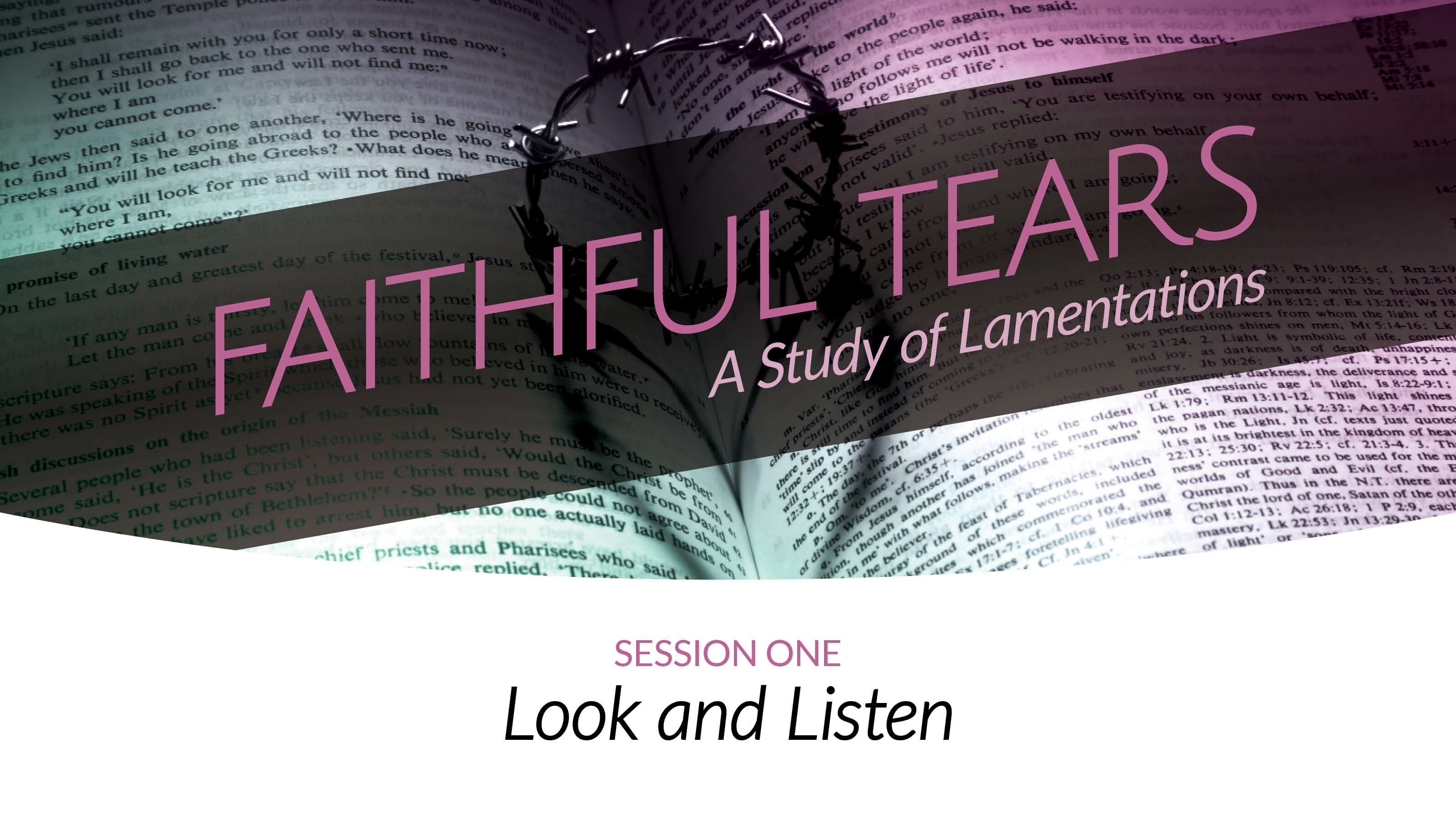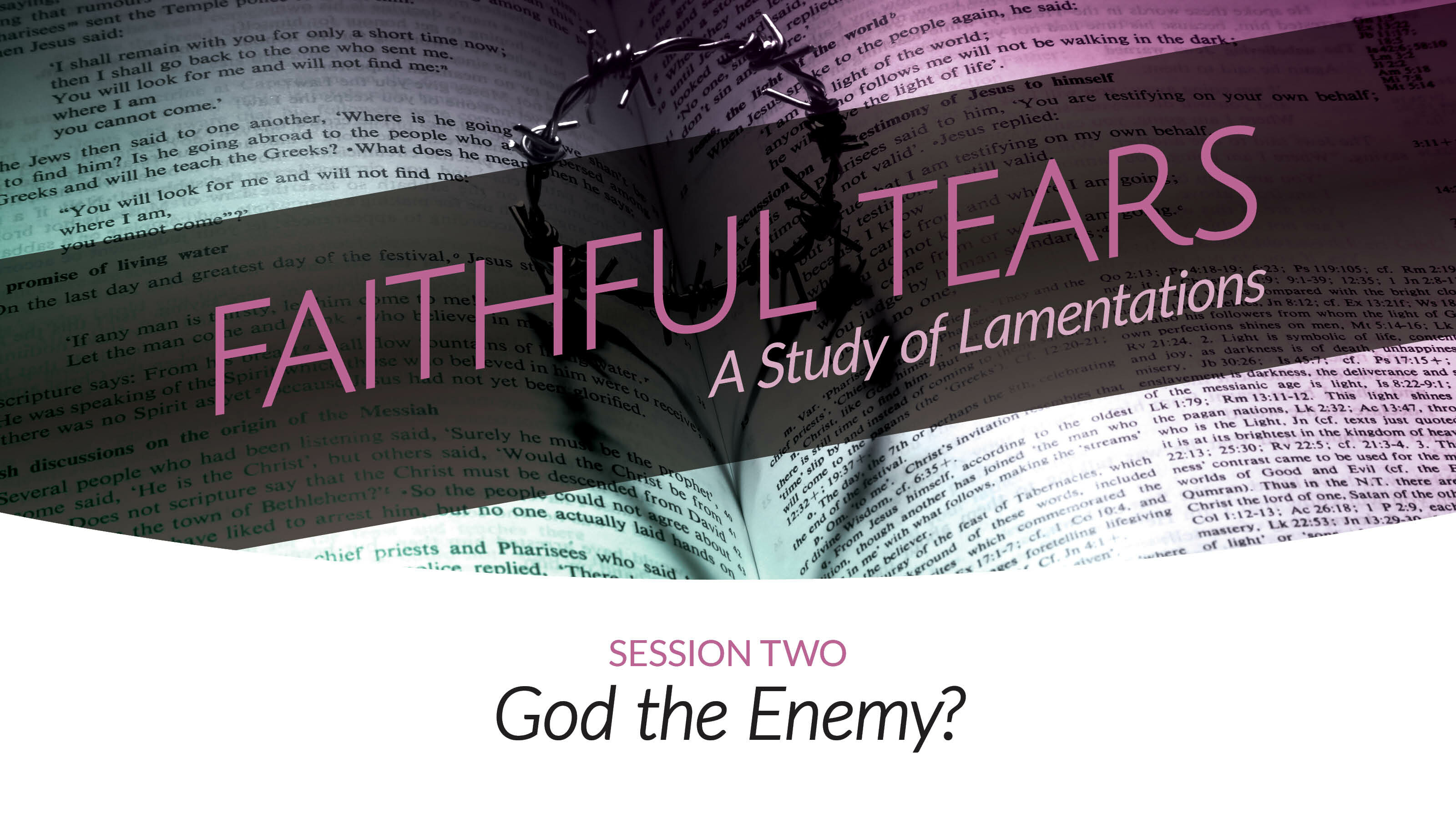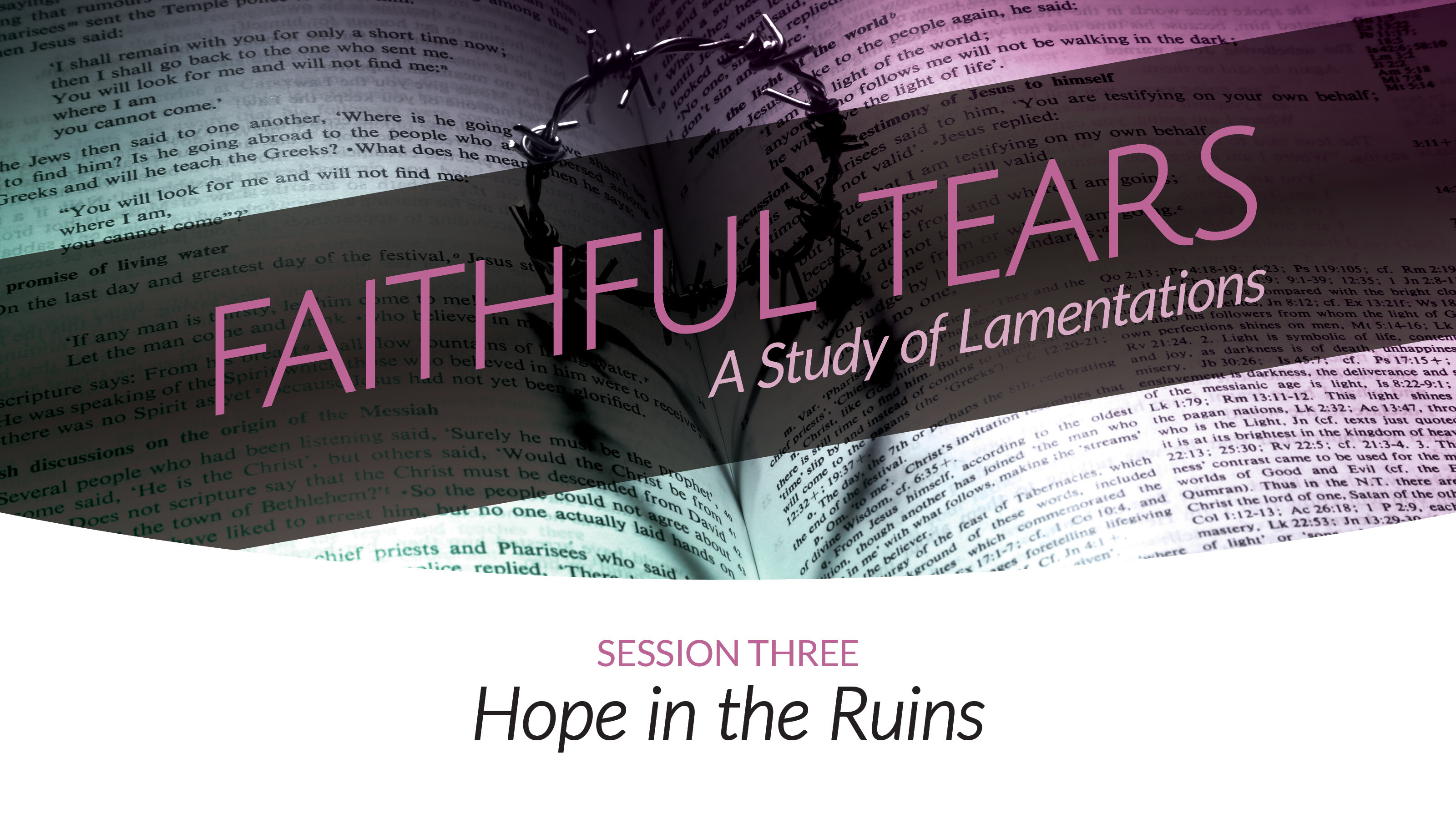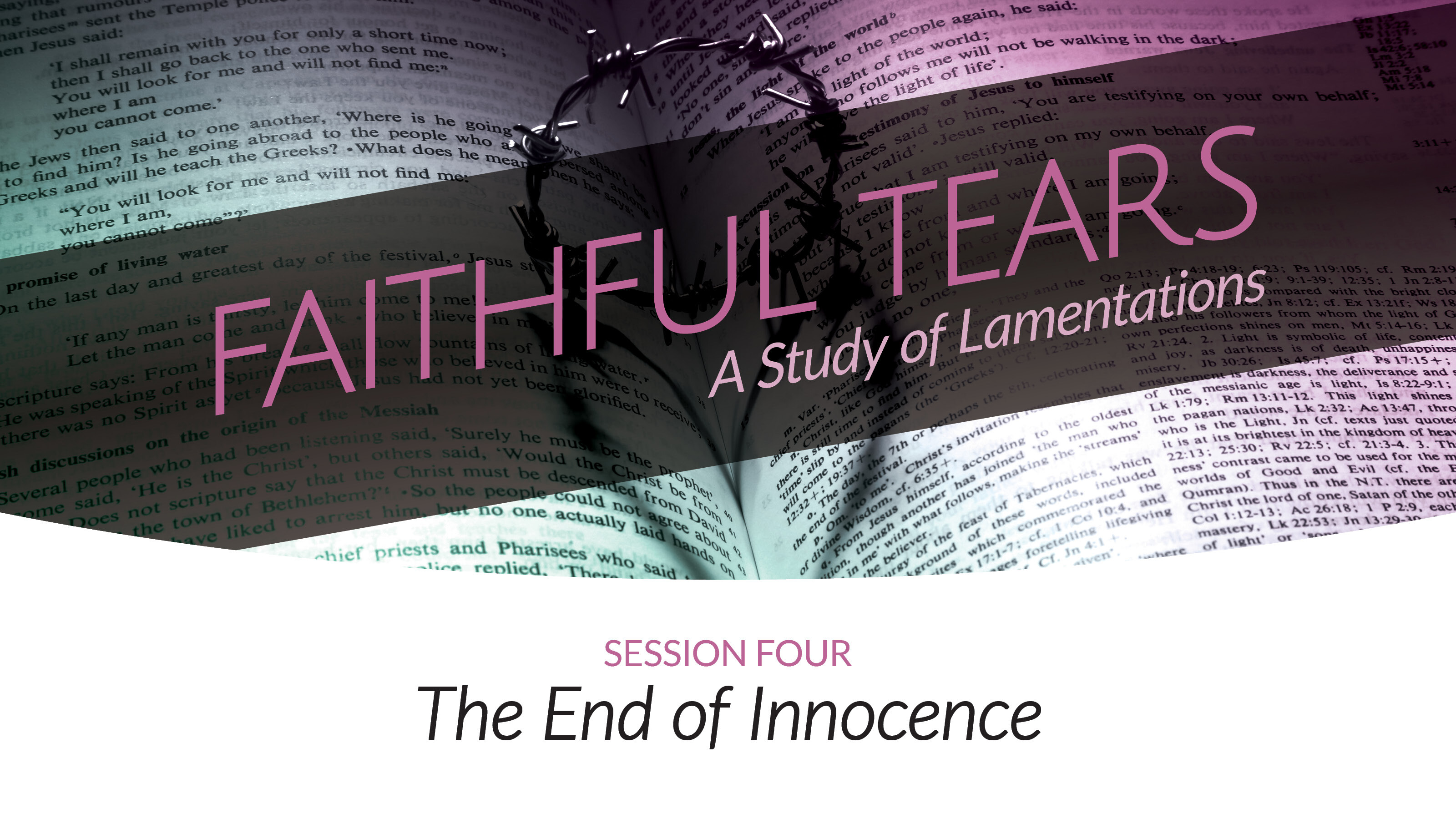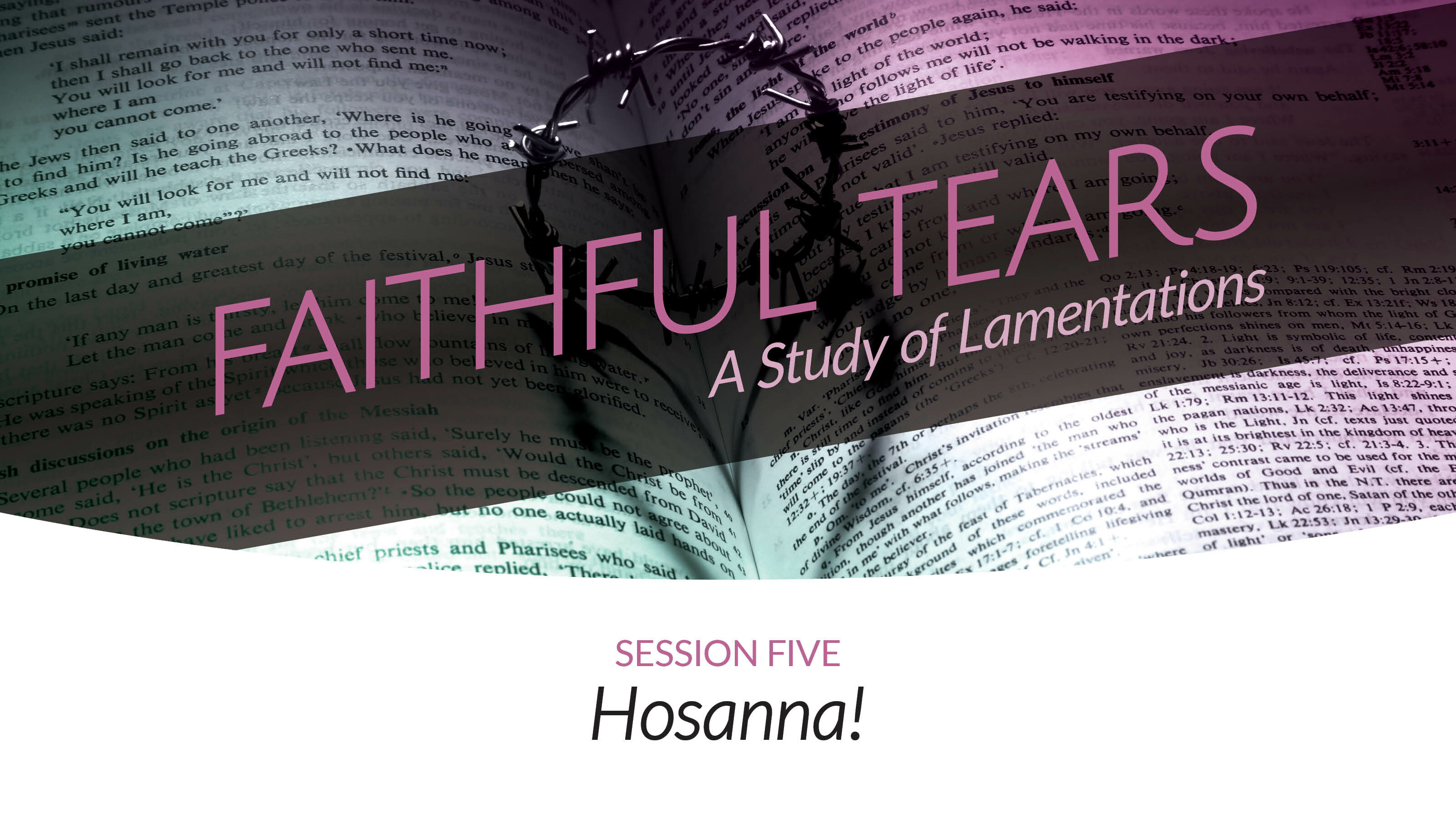Still can't find what you are looking for? Let us know how we can help.
Use the login below to access your InFellowship account.
Need an account?
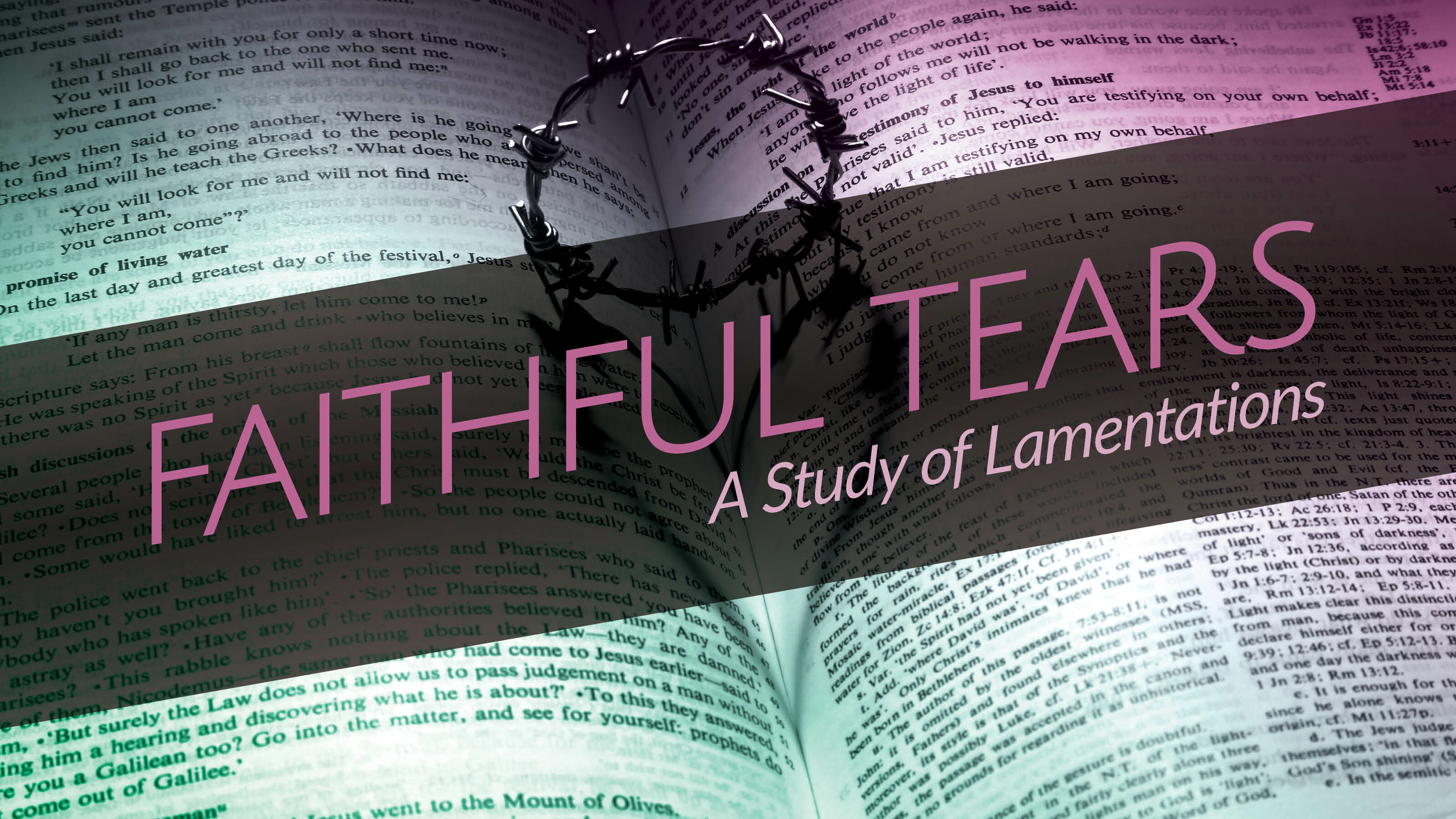
Study Description
“Blessed are those who mourn,” Jesus says. It was as strange when Jesus first said it as it is strange today. And yet the teaching echoes a truth proclaimed throughout the Bible, that mourning—be it grief, sorrow, or lament—is a common and crucial experience in the life of God’s people.
In this study, we reflect on the book of Lamentations, one of the most profound expressions of lament in all of the Bible, and seek answers to why Jesus calls us to follow him into faithful mourning.
Details
- Length: 5 sessions
- Teachers: The Rev. Dr. Jonathan Bailes
- Leader's Guide: Discussion questions are available for small group leaders.
Access Leader's Guide
Watch the Series
1. Look and Listen
We rarely lament. Christians often shy from public prayer or song that expresses grief, sorrow, or pain. But the Bible is full of examples otherwise, for faithful lament is vital to our discipleship. As we open the book of Lamentations, we learn the first response to pain and suffering ought not be to offer comfort, but instead to simply acknowledge suffering and share in sorrow.
2. God the Enemy?
The author of Lamentations likens God, the destroyer of Jerusalem, to an adversary. And yet, he also exhorts his fellow Jews to turn to this same God in prayer. How can God be both enemy and savior? In this session, we discuss Lamentations 2 alongside historic Anglican prayers as we seek to understand how to pray to the Lord of life and death.
3. Hope in the Ruins
In the middle of Lamentations, when it seems all hope is lost, the poet makes a startling claim: "The steadfast love of the LORD never ceases ... great is your faithfulness." In this session, we explore how is it possible to find hope in the midst of grief, even for those who witness horrific tragedies.
4. The End of Innocence
There comes a moment in tragedy when the lament turns inward and we reckon with "the end of innocence" and "the darkness of man's heart," as William Golding puts it. In Lamentations 4, the poet's grief over the destruction of Jerusalem turns to reflect upon the horror of human sin.
5. Hosanna!
"Hosanna" comes from a Hebrew phrase that means, quite simply, "Save us!" It's a plea for help, the cry of someone who is at the end of their rope and desperately reaching out to a power greater than themselves. At the close of Lamentations, we find here the central posture of biblical religion: the desperate plea from a people in need, looking to God for salvation.
![]()
Find "Christ Church Studies" on Your Podcast Provider
Never Miss a Podcast
Get an email notification whenever Christ Church Plano releases new video and audio content on podcast or livestream. Customize which notifications you would like to receive.
